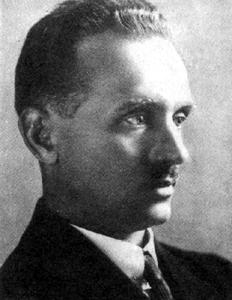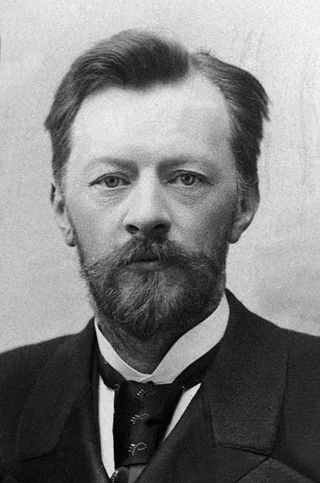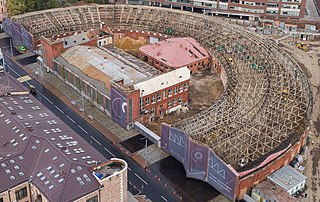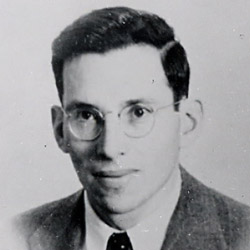
Roman Arkadyevich Abramovich is a Russian oligarch and politician. He is the former owner of Chelsea, a Premier League football club in London, England, and is the primary owner of the private investment company Millhouse LLC. He has Russian, Israeli and Portuguese citizenship.

The Moscow Kremlin, also simply known as the Kremlin, is a fortified complex in the center of Moscow. It is the best known of the kremlins, and includes five palaces, four cathedrals, and the enclosing Kremlin Wall with Kremlin towers. In addition, within the complex is the Grand Kremlin Palace that was formerly the residence of the Russian emperor in Moscow. The complex now serves as the official residence of the Russian president and as a museum with almost three million visitors in 2017. The Kremlin overlooks the Moskva River to the south, Saint Basil's Cathedral and Red Square to the east, and Alexander Garden to the west.

Viktor Felixovich Vekselberg is a Ukrainian-born Russian-Israeli-Cypriot oligarch, billionaire, and businessman. He is the owner and president of Renova Group, a Russian conglomerate. According to Forbes, as of November 2021, his fortune is estimated at $9.3 billion, making him the 262nd richest person in the world.
Russian oligarchs are business oligarchs of the former Soviet republics who rapidly accumulated wealth in the 1990s via the Russian privatisation that followed the dissolution of the Soviet Union. The failing Soviet state left the ownership of state assets contested, which allowed for informal deals with former USSR officials as a means to acquire state property.

The State Tretyakov Gallery is an art gallery in Moscow, Russia, which is considered the foremost depository of Russian fine art in the world.

The Russian avant-garde was a large, influential wave of avant-garde modern art that flourished in the Russian Empire and the Soviet Union, approximately from 1890 to 1930—although some have placed its beginning as early as 1850 and its end as late as 1960. The term covers many separate, but inextricably related, art movements that flourished at the time; including Suprematism, Constructivism, Russian Futurism, Cubo-Futurism, Zaum, Imaginism, and Neo-primitivism. In Ukraine, many of the artists who were born, grew up or were active in what is now Belarus and Ukraine, are also classified in the Ukrainian avant-garde.

Konstantin Stepanovich Melnikov was a Russian architect and painter. His architectural work, compressed into a single decade (1923–33), placed Melnikov on the front end of 1920s avant-garde architecture. Although associated with the Constructivists, Melnikov was an independent artist, not bound by the rules of a particular style or artistic group. In 1930s, Melnikov refused to conform with the rising Stalinist architecture, withdrew from practice and worked as a portraitist and teacher until the end of his life.

Shlomo Dov Pinchas Lazar, better known as Berel Lazar, is an Orthodox, Chabad-Lubavitch Hasidic rabbi. He began his service in Russia in 1990. Known for his friendship with Vladimir Putin, since 2000, he has been a Chief Rabbi of Russia, and chairman of the Federation of Jewish Communities of Russia and Federation of Jewish Communities of the CIS. In September 2005 Lazar became a member of the Public Chamber of Russia. Because of his connections to Russian President Vladimir Putin he is sometimes called "Putin's rabbi."

Vladimir Grigoryevich Shukhov was a Russian and Soviet engineer-polymath, scientist and architect renowned for his pioneering works on new methods of analysis for structural engineering that led to breakthroughs in industrial design of the world's first hyperboloid structures, diagrid shell structures, tensile structures, gridshell structures, oil reservoirs, pipelines, boilers, ships and barges. He is also the inventor of the first cracking method.

Bakhmetevsky Bus Garage was a public bus garage in Moscow, designed in 1926 by Konstantin Melnikov and Vladimir Shukhov. The building, completed in 1927, was an example of applying avant-garde architectural methods to an industrial facility. Neglected for decades and nearly condemned to demolition, it was restored in 2007–2008 and reopened in September 2008 as a gallery of modern art.
David Abramovich Tyshler was a Russian sabreur, part of the first generation of internationally successful Soviet fencers. He is also known as a successful and innovative fencing coach. His notable pupils included Sergey Sharikov, Mark Midler, Mark Rakita, Viktor Sidjak, Viktor Krovopuskov, and Viktor Bazhenov. He choreographed stage and screen combat, and made cameo appearances in Russian cinema.

Constructivist architecture was a constructivist style of modern architecture that flourished in the Soviet Union in the 1920s and early 1930s. Abstract and austere, the movement aimed to reflect modern industrial society and urban space, while rejecting decorative stylization in favor of the industrial assemblage of materials. Designs combined advanced technology and engineering with an avowedly communist social purpose. Although it was divided into several competing factions, the movement produced many pioneering projects and finished buildings, before falling out of favour around 1932. It has left marked effects on later developments in architecture.

Novoryazanskaya Street Garage, also spelled Novo-Ryazanskaya Street Garage, and known as "Horseshoe garage", was designed by Konstantin Melnikov and Vladimir Shukhov in 1926 and completed in 1929 at 27, Novoryazanskaya Street in Krasnoselsky District, Moscow, Russia, near Kazansky Rail Terminal. This garage is still used as such, and houses Moscow's Fourth Bus Park.
The Russian Jewish Congress is a non-profit charitable fund and Russian Jewish organization. It was established in 1996 by a group of Jewish businessmen, workers and religious figures with the goal of reviving Jewish life in Russia.

George Abramovich Koval was an American engineer who acted as a Soviet intelligence officer for the Soviet atomic bomb project. Koval's infiltration of the Manhattan Project as a GRU agent reduced the time it took for the Soviet Union to develop nuclear weapons.
Darya "Dasha" Alexandrovna Zhukova is a Russian-American art collector, businesswoman, magazine editor, and socialite. She is the founder of the Garage Museum of Contemporary Art and Garage Magazine.

Viatcheslav Moshe Kantor is a Russian businessman.
Antisemitism in Russia is expressed in acts of hostility against Jews in Russia and the promotion of antisemitic views in the Russian Federation. This article covers the events since the dissolution of the Soviet Union. Previous time periods are covered in the articles Antisemitism in the Russian Empire and Antisemitism in the Soviet Union.

The Garage Museum of Contemporary Art, also referred to simply as The Garage Museum, is a privately funded art gallery in Moscow. It was founded by Dasha Zhukova and Roman Abramovich as the Garage Center for Contemporary Culture in 2008 and was renamed on 1 May 2014. Since June 2015, it has been housed in a building designed by the Dutch architect Rem Koolhaas.
















